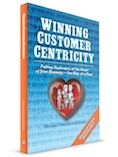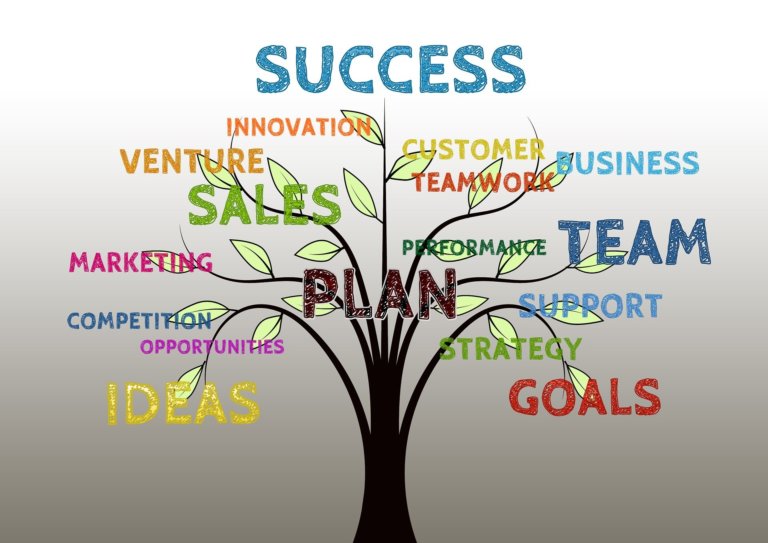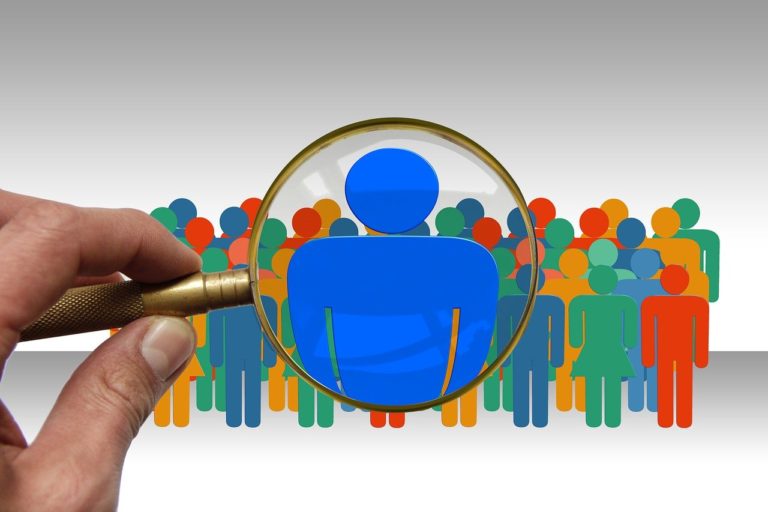Earlier this year I wrote about the impact of AI and ML on digital marketing. The article is called “AI and ML are Taking Digital Marketing to the Next Level.” In it, I compared the positive and negative implications of technology for customers and companies alike. So this week I wanted to write about the impact of smart choices for business in general.
We seem to be surrounded by smart things: smartwatches, smart clothing, smart cars, smart houses and smart appliances. But are they really that smart?
The reason for my question is that an article entitled “Taking ‘Smart’ Out Of Smart Things” by Chuck Martin made me think about whether “smart things” really are that smart, or whether it’s something else that’s making them appear smart?
So here are my views on it. Feel free to add your own opinions in the comments below, I would love to start a discussion on “smartness”.
The Age of the Customer and the Fourth Industrial Revolution
In one of their older Customer Experience reports Forrester claimed that we are now in the “Age of the Customer“. This was music to my ears when I first read it, because as you know I’m a customer champion. However, The World Economic Forum reported a few years ago that we are now on the brink of the “ Fourth Industrial Revolution” which is blurring the lines between physical, digital and biological spheres.
In their article, they explain that
“The First Industrial Revolution used water and steam power to mechanize production. The Second used electric power to create mass production. The Third used electronics and information technology to automate production. Now a Fourth Industrial Revolution is building on the Third, the digital revolution that has been occurring since the middle of the last century. It is characterized by a fusion of technologies that is blurring the lines between the physical, digital, and biological spheres.”
Does this mean that people are becoming less and less important as technology takes over more and more areas of our daily lives – and value? Luckily no. The author, Klaus Schwab, Founder and Executive Chairman of the World Economic Forum concludes the article by saying
“In the end, it all comes down to people and values. We need to shape a future that works for all of us by putting people first and empowering them. In its most pessimistic, dehumanized form, the Fourth Industrial Revolution may indeed have the potential to “robotize” humanity and thus to deprive us of our heart and soul. But as a complement to the best parts of human nature—creativity, empathy, stewardship—it can also lift humanity into a new collective and moral consciousness based on a shared sense of destiny. It is incumbent on us all to make sure the latter prevails.”
So no panic; there will hopefully still be a place for people in this brave new world! But that doesn’t mean that we won’t have to adapt – and adapt quickly if we don’t want to be left behind. This will mean understanding what technology can and can’t do and then building our skills in the latter.
Smart Data
In researching for this post I also found that “smart” is being attributed to many, many new areas and no longer just people. And this is thanks to the increased use of data, or as we now like to term it Big Data, and algorithms to analyse it all.
Data gives us information about what to do, or more precisely, AI now controls many of the processes in which we are involved. Although humans are still smarter (for now?), machines can tell us things that we didn’t know, couldn’t work out for ourselves, or if we could, not as quickly.
AI and ML can recognise patterns in the data and then apply their “learnings” to future processes. You can read more about “What is Smart Manufacturing?” in this article from Industry Week.
It’s not that Big Data is smarter. While we certainly have more information and should be able to make a smarter use of it, unless we ask the right questions, it won’t make us any smarter!
Smart Things or Lazy People?
Another aspect of smart things is that they make life easier for the user. This might suggest that people will become lazier if they don’t compensate for all the actions they no longer have to take during an average day.
Of course, those with fitness bands on their wrists, like myself, may just continue to do things manually for the increased statistics on our activity counter. We are also in constant competition to do better than we did yesterday. This article makes a good read on the topic.
But the average “Jo or Joe” will add more and more robots to do the manual work that they don’t want to do. So what will they do with all this new-found leisure time? Work more or play more? My bet, or rather hope, is for the latter!
With machines taking over the more menial tasks, we will be forced to make better use of our brains; after all, it’s the only thing that robots don’t have – for now at least! So are you training yourself to think more, improve your memory and polish up your analytical skills?
According to Korn Ferry’s 2019 CMO Pulse survey:
“As the champion of the customer, it is not surprising that CMOs cited customer centricity as their top strategic priority. What is concerning, however, is that while more than a third of the CMOs (35%) cited customer centricity as their top strategic priority, only 10% spend most of their time on optimizing the customer experience.”
Why? It’s simple:
“Customer centricity is the top priority for CMOs, but it is a significantly lower priority for the C-suite”
This might explain how CMOs are spending their time:
“67% of the CMOs surveyed said (they were) either driving revenue or driving strategy. The survey also found that 41% of CMOs see strategic thinking as the top capability gap they are focused on developing in their direct reports.”
So if you’re in marketing you’d better start honing these skills and not just your digital marketing, before the robot takes your seat! Smart people will realise and take action; the less-smart will wait and see. Which are you?
Smart Marketing is Responsible Marketing
If you do a Google search for smart marketing, you’ll get a lot of articles suggesting to use the old SMART objectives so popular with HR. You know, SMART is the mnemonic for specific, measurable, achievable, realistic or relevant and time-based. And while these criteria can be just as applicable to our marketing goals, I think we deserve something a little more modern and relevant for today’s world, don’t you?
It’s wonderful to see that over the past decade, we’ve seen a huge increase in businesses becoming more responsible. Whether that is by looking after their employees better, supporting the region in which they are active, or through improved ecological and sustainable practices impacting the whole planet, companies have now recognised the importance of their place in the world beyond merely financial.
The current pandemic has now provided an additional opportunity for businesses to become even more responsible and show empathy as well. A great article on Business2Community entitled “5 Ways to Do Smart & Responsible Marketing During COVID-19” summarises five ways companies can practice empathetic marketing:
- Adjust Marketing Campaigns and Scheduled Content Timelines
- Evaluate Your Imagery and Language
- Don’t Capitalize on the Crisis
- Be Positive, But Not Ignorant
- Highlight How Your Brand Can Help
But the pandemic will be over, eventually, so we need to consider continuing to practice responsible marketing in the years and decades to come. But what does that mean exactly and what will it mean in the future? I was fascinated to see just how many companies claim their marketing to be responsible, but then put a different meaning on it.
Perhaps for obvious reasons, the pharmaceutical industry talks about it more than do any other industry. For Merck, it simply means being ethical. But under that title, they include a lot of actions. These include reviewing all marketing materials, addressing violations to their standards and regulations, training their employees regularly, and limiting direct-to-consumer advertising. For a pharma company, the last one is particularly noteworthy, since many Europeans find the US approach to be somewhat shocking.
Bayer takes responsible marketing much further, highlighting the integrity of its marketing and sales in term of four commitments:
- “To Comply with Laws, Regulations and Good Business Practices”
- “To Be Honest and Reliable”
- “To Listen Attentively and Communicate Appropriately”
- “To Care about People, Safety and the Environment”
I love these statements, as they clearly apply to their employees as much as they do to their customers, clients, consumers. I also believe they sum up very well what responsible marketing should be all about.
If you work in B2B then I highly recommend your reading the article “Smart Marketing during the Covid-19 pandemic.” It’s full of both ideas and examples. In fact, even if you work in B2C I still believe you will find it useful for sparking new ideas in your thinking too.
So that’s my take on smart and responsible marketing. What do you think? What challenges and opportunities will smart things bring to marketing and business in general? Please add your comments below and let’s start a wave of smart discussions!









